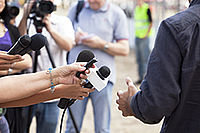Latest News
04 December 2020
Professor Ronald Hanson appointed Distinguished Professor in Quantum Computing and Quantum Internet
Professor Ronald Hanson of the Faculty of Applied Sciences (AS) and the QuTech Institute has been appointed Distinguished Professor in Quantum Computing and Quantum Internet.
03 December 2020
TU Delft appoints ‘Pro Vice-Rector’ of AI, Data and Digitalisation
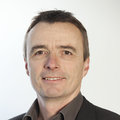
The Executive Board of TU Delft has appointed Professor Geert-Jan Houben as Pro Vice-Rector Magnificus of Artificial Intelligence, Data and Digitalisation (PVR AI) with effect from 1 December 2020. In this role Houben will be leading the TU Delft AI Initiative and promoting regional, national and international co-operation on this theme.
02 December 2020
TU Delft software for determining contagion risk for specific locations
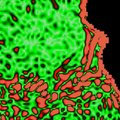
TU Delft professor of aerodynamics Fulvio Scarano, together with fluid mechanics expert Lorenzo Botto and simulation expert Wouter van den Bos, has developed software to calculate the risk of Covid-19 contagion at specific locations. The model virtually places a sick person in the space in question and simulates how quickly virus particles spread. The TU Delft researchers hope that designers will use the software to make predictions for determining whether an aircraft, classroom or restaurant, for example, is safe. The plug-in will probably become available in February.
01 December 2020
Delft researchers develop blood oxygenation sensor for premature babies
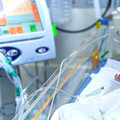
Doctors have to keep a close eye on babies that are born prematurely, and brain oxygenation is perhaps the most important thing to monitor. Up to 50 percent of premature babies suffer brain damage, leading to neurological problems. Researchers at Delft University of Technology have now developed a wireless sensor that monitors the health of the baby's brain in a simple, inexpensive and comfortable way for the child.
01 December 2020
Researchers peer deep inside tissue
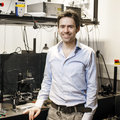
One of the challenges in optical imaging is imaging the inside of tissue in high resolution. Traditional methods allow us to look to a depth of approximately one millimetre. Researchers at Delft University of Technology have now developed a new method that can penetrate up to four times as deep: up to around four millimetres. The healthcare sector in particular may benefit from the new technique in the future.
25 November 2020
TU Delft partner in nine NWA-ORC consortia
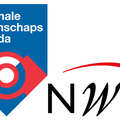
TU Delft researchers will work together in ten consortia with the entire knowledge chain and societal organisations
23 November 2020
Photovoltatronics: smart solar cells that talk to each other
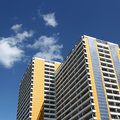
Imagine you’re looking at a skyscraper. Every single piece of their surface is generating and storing its own electricity!
20 November 2020
Team ZED from the Delft University of Technology has won 4TU Impact Challenge
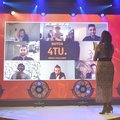
Team ZED has won the Dutch 4TU Impact Challenge and goes to the World Expo in Dubai.
20 November 2020
Research into face mask leakage
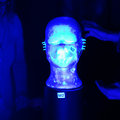
Philomena Bluyssen and Marco Ortiz are developing a method in the SenseLab to compare leakage rates in different non-medical face masks. Up to now the NEN standard does not contain such a test.
18 November 2020
Majority of Dutch people not lining up for COVID-19 vaccine
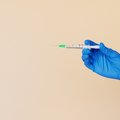
An effective and safe COVID-19 vaccine is on the horizon. Still, a majority of people in the Netherlands say they’d rather not take a vaccine as soon as it becomes available, but wait instead. They are concerned about the potential risks of the vaccine. This conclusion comes from analysis of a choice experiment among a representative sample from the Dutch population. The experiment was done by researchers from Dutch universities (TU Delft, University of Maastricht, Erasmus University Rotterdam), the Dutch National Institute for Public Health and the Environment as well as Roskilde University.
